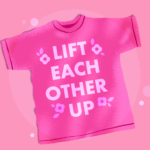- What do unions do?
- How do I know which union I’m a member of?
- What is a collective agreement?
- What does a shop steward do?
- What is a grievance? If I file one, will I get in trouble?
- I’m a temporary or casual worker. Am I represented by the union?
- I’m on probation. Am I still represented by the union?
- How can I get involved in my union?
- What happens at a union meeting? I don’t get the language and process.
What do unions do?
A union is a group of workers who have gotten together to bargain with their bosses to improve their working conditions. Unions have a vast array of responsibilities: member representation, collective bargaining, organizing, community building and charity work, education, political action, international solidarity work, and more.
How do I know which union I’m a member of?
A simple way to know if you’re a union member is to look on your pay stub (that list attached to your pay cheque that says how much you got paid, and any deductions like taxes). If you are a union member, you pay union dues, which will show up on the deductions side of the list.
Other ways to find out include asking your co-workers, and searching online. You may also have a union bulletin board somewhere in your workplace where union notices are posted.
If your workplace is unionized, you have to join the union. However, if you are prohibited from joining due to religious obligations, you can instead choose to pay the equivalent of your union dues to a charitable organization. For more information about this, contact your local union.
What is a collective agreement?
A collective agreement (also known as a collective bargaining agreement, or CBA) is a legal agreement between the members of a union and an employer. It outlines things like wages, hours of work, holidays, health & dental benefits, sick days, harassment & bullying procedures, union rights, management rights, and more. Collective agreements are as diverse as the many sectors where people work. If you need help interpreting your collective agreement, contact your shop steward or local union office.
What does a shop steward do?
Your shop steward is someone who works in your workplace, and is your first contact in case you need help with anything related to your working conditions or collective agreement. Stewards also file grievances, represent union members with management, and deal with arbitration. They also act as a line of communication from your union – they generally bring the latest news about upcoming education opportunities, bargaining news, and other information from your local.
If you are interested in learning more, or becoming a shop steward yourself, visit our education department for more information.
What is a grievance? If I file one, will I get in trouble?
Has your boss ever not paid you for hours you worked? Or not given you a raise when one was promised? If you don’t have a union and your boss doesn’t want to cooperate, you don’t have a lot of power to fix the situation.
But if you’re a union member, we file a grievance. A grievance is simply a form that says the collective agreement was violated, and you want to get it fixed. A grievance is not a complaint against a fellow employee, and it is not a complaint that you simply don’t like something at work.
You cannot get in trouble with your boss for filing a grievance, although often it causes tension in the workplace. If you need to file a grievance or simply want more information, talk to your workplace shop steward, or contact your local union office.
I’m a temporary or casual worker. Am I represented by the union?
As a temporary or casual worker, you may or may not be represented by the union. It depends on the collective agreements that govern the workers in your workplace. To find out if you’re covered, look at the job classifications page in the collective agreements that govern your workplace.
I’m on probation. Am I still represented by the union?
Yes. If your position is covered under your workplace collective agreement, you are represented by the union as soon as you start your job. However, you should be aware that there may be special language in the collective agreement about workers on probation. Ask your union representative or Human Resources Department for a copy, and read through the sections pertinent to your job.
How can I get involved in my union?
There are lots of ways to get involved in your union. The first thing you can do is attend your local union meeting, or talk to your local shop steward about how you can get involved. From there, you can join a committee – such as a Young Workers Committee. Your union will also provide educational opportunities. Your union may also be running campaign on social issues that you can support by signing petitions, and attending rallies.
What happens at a union meeting? I don’t get the language and process.
Most unions have monthly or bi-monthly meetings with their members to decide the union’s direction, finances, and community involvement.
Most local unions run their meetings using Robert’s Rule of Order. This is a specific method of running a meeting that has rules about how you can participate. However, don’t let these rules deter you from attending your local meeting – if it’s your first or second time, simply say so and most of the time, any broken rules will be forgiven. There’s generally someone at the meetings who can explain how the rules work to you either before or after the meeting.
If you want some helpful pointers, or need a guide to run your own meeting, check out the OFL’s Guide to Running Effective Meetings.
Have another question? Ask us at youngworkers@clc-ctc.ca






